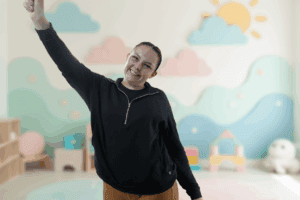Segalo says research has shown that almost 50% of people who commit suicide had a known mental health condition.

Suicide and depression are in the spotlight again after a third alleged suicide was recorded in Pretoria in less than a month.
Steve Biko Academic Hospital spokesperson Lovey Mogapi confirmed a person died after he fell from the sixth floor of a building on Tuesday. Democratic Alliance Gauteng shadow health MEC Jack Bloom described the incident as tragic.
“We need a swift investigation to establish what happened and whether there were enough preventative measures,” Bloom said.
Last weekend, police spokesperson Colonel Noxolo Kweza said police were investigating after a man died at Menlyn Shopping Mall when he fell to his death. In July, another man also fell to his death from the mall.
Clinical psychologist at Unisa Prof Puleng Segalo said several issues led to people feeling helpless and hopeless.
“People may experience mental breakdown as a result of persistent abuse which could be physical, emotional, sexual, workplace bullying and it could lead to a person wanting to selfharm or having what we call suicidal ideation,” she said.
ALSO READ: Alleged suicide of 12-year-old shocks family, community
Segalo said with no support or an avenue to deal with what the individual was going through, they may see suicide as the solution.
“With Covid, many people lost their sources of income and as a result, some lost their homes which may lead to depression and ultimately suicide,” she said.
“Many people lost their loved ones and sometimes their whole family in a short time due to Covid. As a result, they may still be dealing with unresolved bereavement and grief. For some, they struggle to cope and see suicide as the way out.”
Segalo said research showed that almost 50% of people who commit suicide had a known mental health condition.
“Therefore, it is critical to shed light on mental health awareness and remove the stigma associated with it. People should be made aware that they should not suffer alone and that there are avenues they can use to get help,” she said.
Dr Erica Munnik, clinical psychologist at the department of psychology at the University of the Western Cape, said suicide was usually the result of a combination of factors and ideation wasusually seen as a cry for help.
“It can be a planned or an impulsive act. Individuals that are depressed have experienced trauma, or have severe ongoing stressors, that have experienced losses, that are experiencing emotional pain, helplessness and hopelessness are more prone to suicidal ideas, ideation or attempts,” she said.
Munnik added mental disorders such as bipolar, schizophrenia, borderline personality disorder and substance use and abuse can also increase the risk for suicide.
ALSO READ: ‘We are taking our own lives at record highs’ – AKA opens up about male suicide
“Losses, financial pressures, loss of family members, job loss and even loss of physical health such as chronic pain or chronic diseases can add to the hopelessness and helplessness that leads to the experience of feelings of despair resulting in anxiety or depression,” she said.
“Interpersonal stress might also be a contributing factor as individuals might feel that they are a burden to others, they might feel socially isolated.”
Munnik said signs included suicidal thoughts or plans and greeting loved ones using expressions like “life is not worth living any more or life does not make sense anymore”.
She said feelings of hopelessness and helplessness, a lack of interest and pleasure in daily activities, isolation and an increase in substance use were also considered signs.






